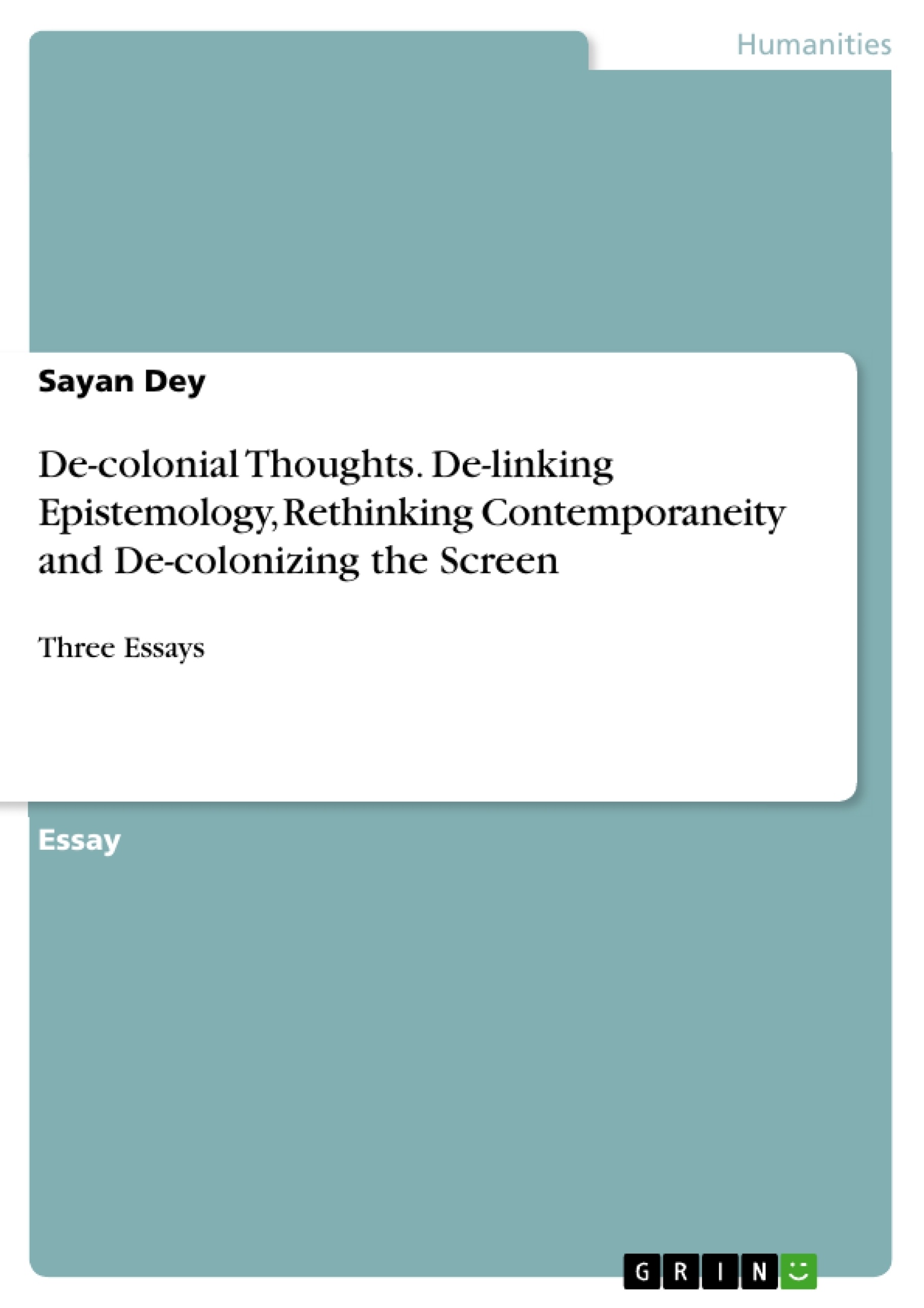This book took birth in my mind when I had three essays which explore three different perspectives of de-coloniality and connect to each other with the underlying theme. It conceives a major section of my thoughts and ideas associated with the element of de-coloniality and I hope it will be of great help for the scholars who are newly venturing into this field.
Inhaltsverzeichnis (Table of Contents)
- Preface
- De-linking Epistemology: Unlearning to Relearn
- Rethinking Contemporaneity: Ushering a Neo-dynamic Society
- De-colonizing the Screen: The Margins Act Back
- Introduction: Decolonization
- Decolonizing The Screen
- Conclusion
Zielsetzung und Themenschwerpunkte (Objectives and Key Themes)
This book aims to explore various aspects of de-coloniality through three essays, each presenting a unique perspective on the subject. It delves into the complex relationship between power and knowledge, and how this dynamic has shaped societal structures and individual experiences. The book seeks to provide a critical lens for understanding the historical and contemporary implications of colonial legacies and to encourage further dialogue and action towards a more just and equitable world.
- The Interplay of Power and Knowledge
- The Impact of Eurocentric Epistemology on Global Knowledge Systems
- Decolonizing the Screen and Challenging Dominant Narratives
- Rethinking Contemporaneity and Building a Neo-dynamic Society
- The Importance of Decolonizing Thought and Practice
Zusammenfassung der Kapitel (Chapter Summaries)
The first chapter, "De-linking Epistemology: Unlearning to Relearn," examines the interconnectedness of power and knowledge, drawing upon Michel Foucault's analysis of disciplinary power. It critiques the dominance of Eurocentric perspectives in global knowledge production and explores the historical and ongoing consequences of colonial epistemological frameworks.
The second chapter, "Rethinking Contemporaneity: Ushering a Neo-dynamic Society," focuses on the need to move beyond traditional notions of modernity and to envision a more inclusive and equitable future. It explores the potential for de-colonial thought to guide the development of new social and political structures that address the challenges of the 21st century.
The third chapter, "De-colonizing the Screen: The Margins Act Back," delves into the representation of marginalized communities in film and media. It analyzes the ways in which colonial power structures have shaped cinematic narratives and explores the potential for de-colonial filmmaking to challenge dominant perspectives and amplify marginalized voices.
Schlüsselwörter (Keywords)
Decoloniality, Epistemology, Power, Knowledge, Eurocentrism, Colonialism, Postcolonialism, Anti-colonialism, Global Knowledge Systems, Representation, Media, Film, Neo-dynamic Society, Social Justice, Equity, Marginalized Communities, Dominant Narratives.
Frequently Asked Questions
What is the main theme of the book "De-colonial Thoughts"?
The book explores different perspectives of de-coloniality, focusing on the relationship between power and knowledge and challenging Eurocentric epistemology.
What does "De-linking Epistemology" mean?
It refers to the process of unlearning dominant Eurocentric knowledge systems to relearn and create more inclusive global knowledge frameworks.
How does the book address media and film?
The chapter "De-colonizing the Screen" analyzes how colonial power structures shape cinematic narratives and how marginalized voices can challenge these dominant stories.
What is meant by a "Neo-dynamic Society"?
It represents a vision for a future society that moves beyond traditional modernity toward more equitable and inclusive social and political structures.
Who is the target audience for this work?
The book is specifically aimed at scholars and students who are newly venturing into the field of de-colonial studies.
- Citar trabajo
- Sayan Dey (Autor), 2016, De-colonial Thoughts. De-linking Epistemology, Rethinking Contemporaneity and De-colonizing the Screen, Múnich, GRIN Verlag, https://www.grin.com/document/316856



